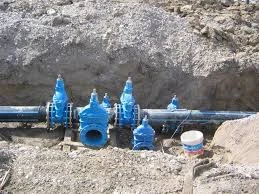Dhj . 24, 2024 05:40 Back to list
HDPE Pipes for Efficient Water Delivery Systems and Sustainable Supply Solutions
The Importance of HDPE Water Supply Pipes in Modern Infrastructure
High-Density Polyethylene (HDPE) pipes have become an essential component in modern water supply systems. Known for their durability, flexibility, and resistance to corrosion, HDPE pipes are increasingly favored by engineers and municipalities for water distribution applications. This article explores the characteristics, advantages, and applications of HDPE water supply pipes, emphasizing their significance in ensuring efficient water management in this complex world.
Characteristics of HDPE Pipes
HDPE is a thermoplastic polymer made from petroleum. The production process results in a material that boasts a high strength-to-density ratio. These pipes can range in diameter, flexibility, and thickness, making them suitable for various applications. One of the remarkable properties of HDPE is its resistance to a wide range of chemicals and corrosion, minimizing the risk of leakage, contamination, and degradation over time. Additionally, HDPE pipes can withstand extreme environmental conditions, making them ideal for underground installations where soil, moisture, and temperature fluctuations can impact traditional piping systems.
Advantages of HDPE Water Supply Pipes
1. Durability and Longevity HDPE pipes are known for their long service life, which can exceed 50 years when properly installed. They do not corrode, rust, or suffer from mineral build-up, which contributes to their low maintenance requirements.
2. Lightweight and Flexible Compared to traditional materials like steel or concrete, HDPE pipes are incredibly lightweight. This characteristic not only simplifies transportation and handling but also facilitates easy installation, especially in challenging terrains or areas with existing infrastructure.
3. Cost-Effective Although the initial cost of HDPE pipes may be higher than some conventional materials, their long lifespan and reduced maintenance needs lead to significant savings over time. Moreover, the ease of installation helps reduce labor costs.
hdpe water supply pipe

4. Environmentally Friendly HDPE is recyclable, and using it in water supply systems contributes to sustainable practices. Additionally, the lack of toxicity in HDPE materials ensures that the water remains free from harmful leachates, promoting public health.
5. High Flow Capacity The smooth interior surface of HDPE pipes significantly reduces friction losses, leading to efficient water flow. This characteristic is particularly beneficial in large-scale water supply systems where minimizing pressure loss is critical.
Applications of HDPE Pipes
HDPE pipes' versatility has led to their widespread use in various applications. They are commonly employed in municipal water supply networks, irrigation systems, dredging operations, and even in the oil and gas industry. Their resistance to UV radiation and temperature variations makes them suitable for both above-ground and underground installations.
In urban areas where excavation is complicated, trenchless technology can be utilized in conjunction with HDPE pipes. This method reduces surface disruption, making it ideal for busy city landscapes. Additionally, the use of HDPE pipes in stormwater and wastewater systems has become increasingly common, owing to their exceptional performance in managing environmental impacts.
Conclusion
As water scarcity becomes a pressing global issue, the need for efficient water supply systems has never been more critical. HDPE water supply pipes offer a robust solution that aligns with contemporary demands for durability, cost-effectiveness, and environmental sustainability. By investing in HDPE technology, municipalities and water authorities can ensure reliable and safe water distribution for their communities. The ongoing development of HDPE materials and construction techniques promises to further enhance the capabilities of water supply systems, ensuring they remain resilient in the face of changing environmental conditions and increasing population pressures. In conclusion, HDPE pipes represent not just a modernization of infrastructure but a commitment to securing our most vital resource water.
-
25mm PVC Irrigation Pipe - Durable & Efficient Watering Solution for Farms & Gardens
NewsJul.05,2025
-
HDPE Culvert Pipe Supplier – Durable, Leak-Proof & Easy Installation Solutions
NewsJul.05,2025
-
High Transparency PVC Clear Sheet Super Transparency PVC Sheets & HDPE Cutting Board Supplier
NewsJul.04,2025
-
High-Quality PVC-M Pipe Supplier Trusted PVC Pipe Company & 75mm PVC Connection Pipe Solutions
NewsJul.04,2025
-
PVC Transparent Sheet Roll - Durable & Flexible PVC Plastic Sheet Roll for Industrial & Home Use
NewsJun.24,2025
-
High-Quality PVC PPR Pipes and Fittings Durable ERA PPR Solutions
NewsJun.10,2025

